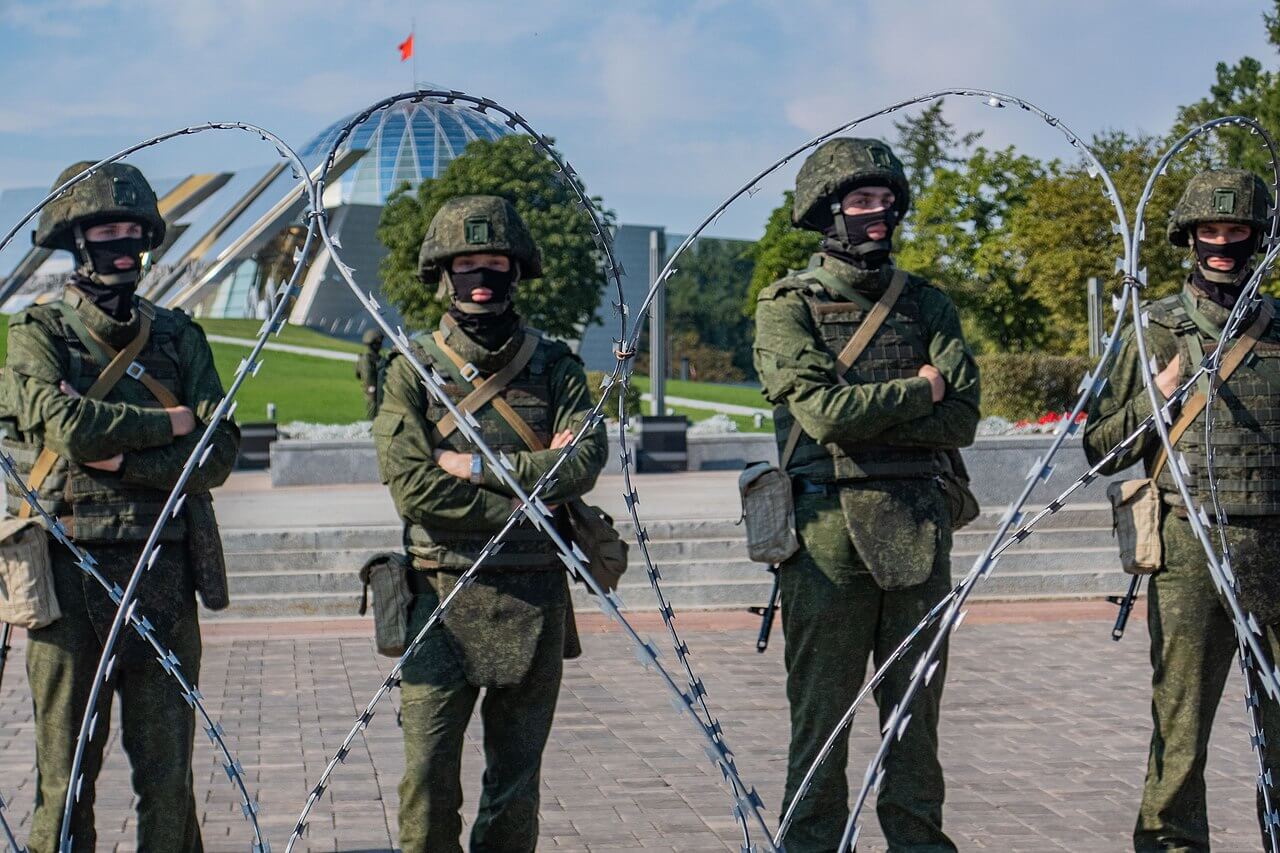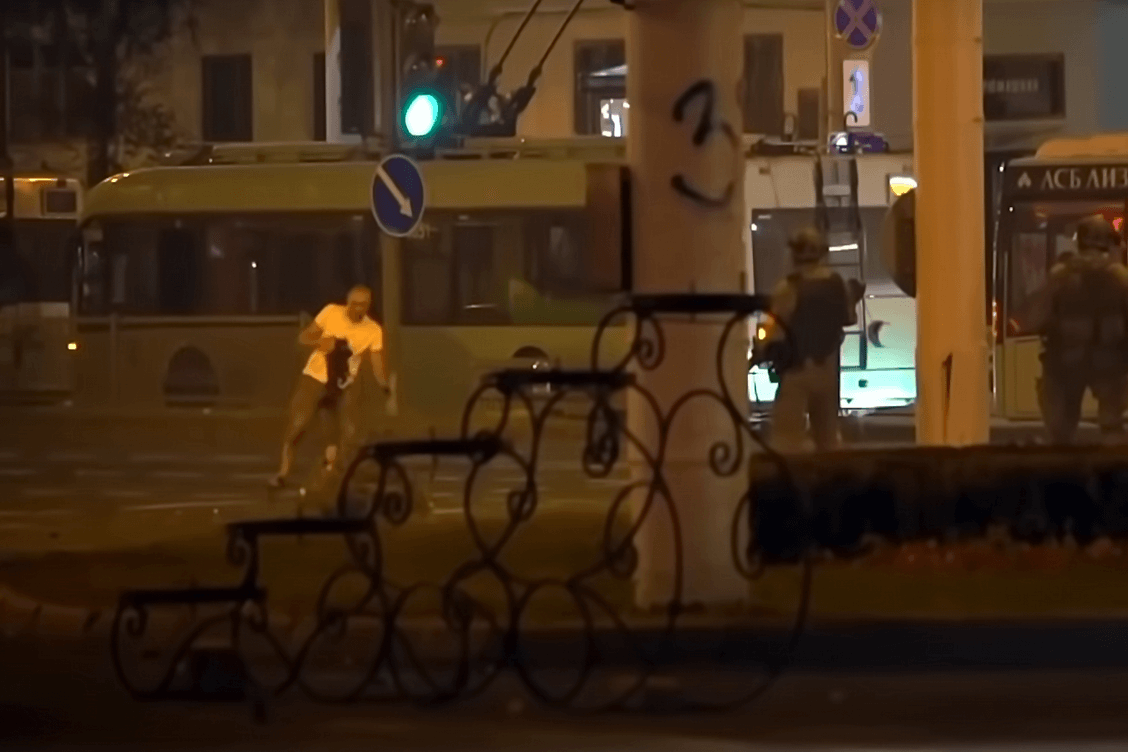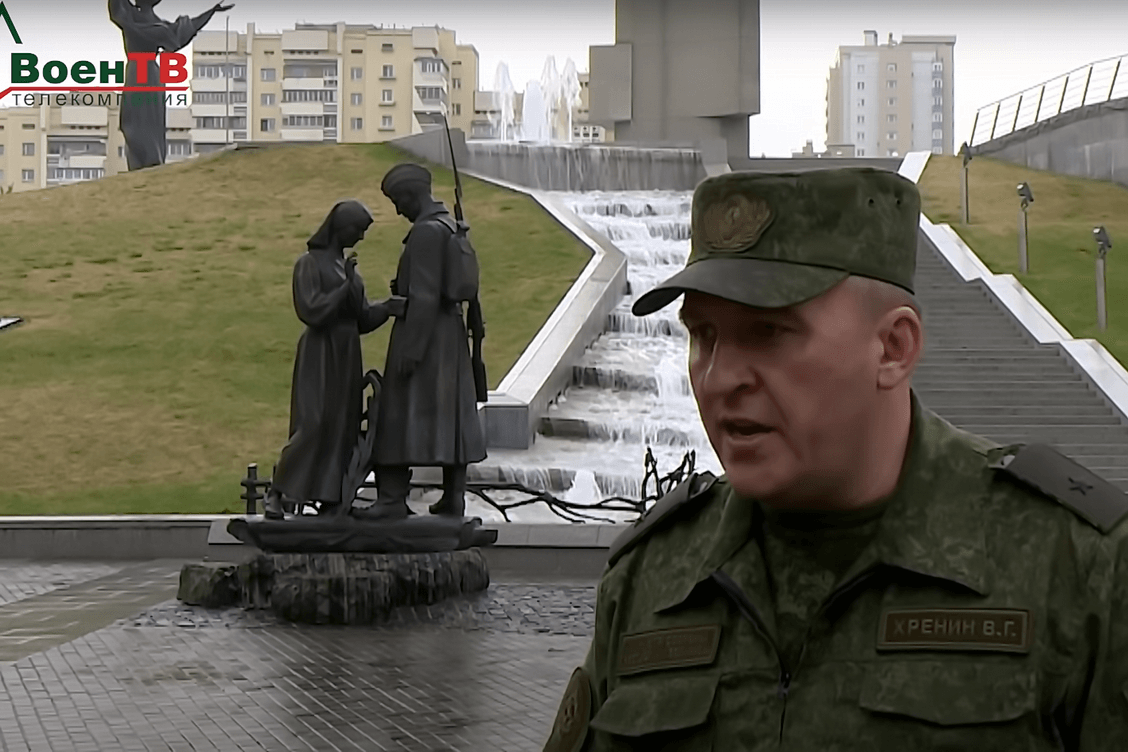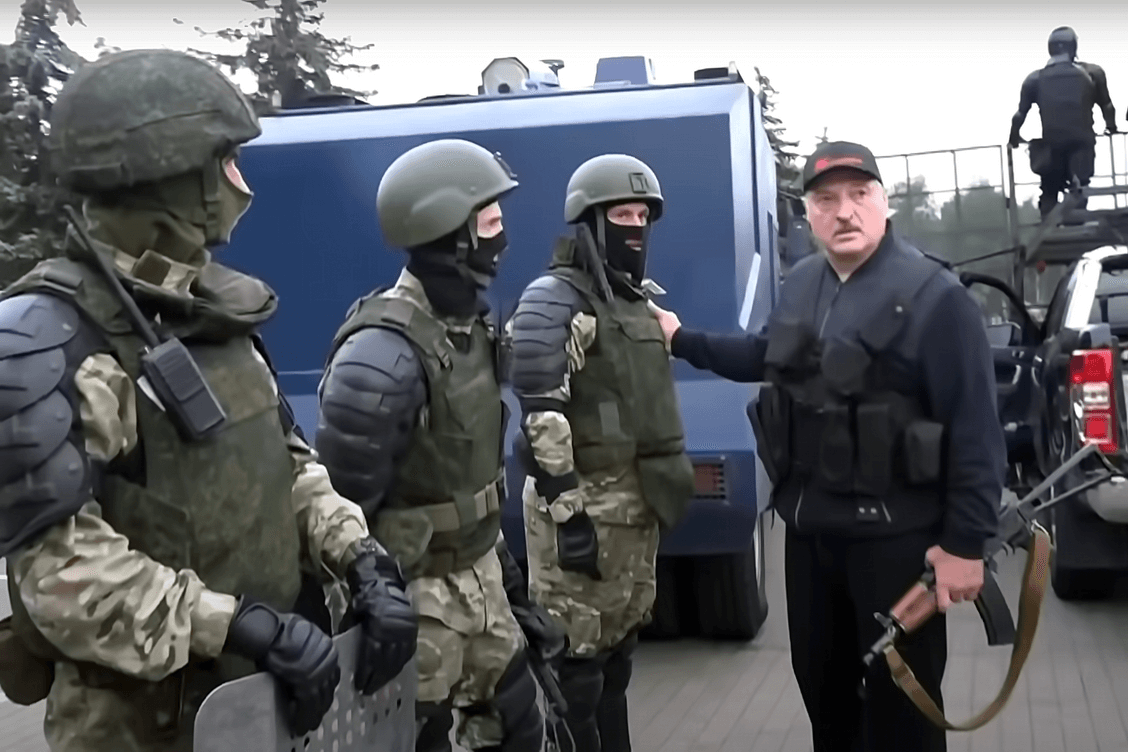The government gives law enforcers a free hand to suppress popular unrest. On February 1, Alaksandar Łukašenka signed Edict No. 37 to authorize soldiers to shoot at suspected offenders without firing a warning shot.

Under the amended Paragraph 11 of the army’s internal service manual, troops are allowed to use physical force, combat equipment and weapons depending on the circumstances, the nature of an offense and the offender’s identity.
The previous version authorized soldiers to use physical force and weapons only “if they cannot carry out their tasks by other means.”
The requirement for soldiers to fire a warning shot has been removed.
However, troops must still warn offenders of their intention to use firearms, “except in cases where delay in their use would cause an immediate danger to the life of a serviceman or other citizens.”
Under the paragraph, servicemen are not liable for any damage caused by combat equipment and weapons. Łukašenka also removed the clause that carried punishment for soldiers exceeding authority while using physical force, combat equipment and weapons.
Protester shot in the back of the head found guilty posthumously
Before 2020, it was hard to imagine that Belarusian soldiers could point guns at civilians.
During her 2020 election campaign, Śviatłana Cichanoŭskaja toured the country, gathering huge rallies. Łukašenka toured military units instead. While Cichanoŭskaja hoped for a fair contest, the incumbent prepared his brutal response, realizing that he was in trouble.
On June 22, during his visit to the 38th Brest Airborne Assault Brigade, the Belarusian ruler said that governments in other countries imposed curfews and used military force to quell protests, apparently referring to the Yellow Vest Protests in France and riots in the United States.
On July 24, during his visit to the 5th Detached Special-Purpose Brigade in Maryina Horka, Łukašenka said that “a war does not start out of the blue. It starts early, first of all with internal armed conflicts and color revolutions . . . Therefore, we must be constantly on guard.”
“If someone tells you that Łukašenka has come here to force servicemen to restore order on the streets,” the ruler said, as if denying that that was his intention, but then went on, “although this unit, given its specialization, can be used by law to restore order if, God forbid, there is a Maidan revolution somewhere.”
A month later, he sent troops to disperse peaceful protests. In one incident, a plainclothes soldier from the 5th Brigade shot Hiennadź Šutaŭ in the back of his head in August 2020 during protests in Brest, suggests evidence presented later in court. However, the judge found Šutaŭ and his friend guilty and sentenced the latter to ten years in prison.
Brutality
Mikałaj Karpiankoŭ, a police unit chief notorious for his brutality during the peaceful protests, was promoted to deputy interior minister and commander of the Internal Troops.
In January 2021, the ByPol resistance group released an audio recording of a closed-door meeting, at which he instructed his men to use brutal force and firearms: “Well, do something, mutilate, maim or kill him. . . . If he loses half his brain, good riddance!”
Some members of the opposition have gone mad and are possessed by the devil, therefore they deserve to die, he told STV in October 2022.
https://aianalyticsweb.com/en/news/43981
In another televised interview, Karpiankoŭ said, “Of course, we will use weapons humanely against them, including firearms.”
He said he was talking about someone who is “coming at you” with “a shiv in his hand.” However, the video of Alaksandar Tarajkoŭski’s murder in Minsk on August 10, 2020 proves that the demonstrator was unarmed and did not show any aggression. But investigators would say later that the law enforcers followed proper instructions.

Although there were many instances of unjustified violence and outright brutality on the part of law enforcers during the peaceful uprising, none of the culprits has been punished.
Defense Minister Viktar Chrenin deployed soldiers to guard World War II memorials in Minsk. “You will not deal with police, you will deal with the army,” he warned in a video message to protesters. But protests did not even think of desecrating war monuments, they just demanded a fair election.

Shoot on the spot
Army ideology officers are brainwashing soldiers, portraying government opponents as enemies and the fifth column of the West.
In January 2022, Łukašenka claimed that NATO troops were on standby in 2020, waiting for protesters to seize a government building and “declare themselves the government.”
In August 2023, he went as far as to say that World War III would have started had he not suppressed the protests.
“If they had announced, at least for one night, that there was a new government here, even if it had been just a fake announcement, they would have turned to NATO, and [NATO] troops would be ready to go to Smolensk. Who would take care of things here? For the Russians, seeing NATO troops near Smolensk is worse than near Kharkiv. And World War III would have started right here.”
He never bothers to prove his claims. No signs of alliance’s preparations for an invasion were reported then. NATO is cautious in supporting Ukraine because it fears of a direct clash with Russia. So, in 2020, would it really interfere in the Belarusian turmoil and challenge the Russian bear?

Ideology officers tell soldiers that beating and shooting civilians is OK and that they would be saving the Motherland. The government is rewriting laws to legalize armed violence.
In January, Łukašenka amended the law “On State Security Agencies” to allow officers to use weapons against women, children and people with disabilities. In May, the government authorized internal troops “to use combat and special equipment to suppress mass riots,” removing the clause that said weapons could be used only after “other ways and means prove ineffective.”
Militarization is in full swing. The government vowed to supply arms to rescue workers, set up people’s militia units and is trying to pit hunters against the opposition.
The regime wants to have more armed loyalists in case of internal unrest.
Soldiers promised impunity
Officials promise soldiers impunity if they take any action to protect the regime. They demonize political opponents, portraying them as subhumans without rights. Officers are said to have had some success in zombifying troops.
Before 2020, opposition supporters had the illusion that a Belarusian would never shoot at another Belarusian during a revolution. Now that illusion is gone.
Government radicalization radicalizes opponents. Many opposition politicians say that this government can only be overthrown by force. Of course, if the Kastuś Kalinoŭski Regiment comes to Belarus, its soldiers will not be handing out flowers to Łukašenka’s law enforcers, as Belarusian women did during 2020 protests.
Independent polls suggest that the core supporters and opponents of the government hate each other. A new outbreak of protests could turn Belarus into a major bloodbath.
In August 1991, the hardliners, who tried to reinstate Stalinist dictatorship in Russia, issued scary decrees and brought tanks to Moscow just to lose in three days. Soldiers refused to shoot at civilians, and commanders sided with Boris Yeltsin.
In Belarus, much will depend on whether there is a split within the ruling elite during a hypothetical new crisis.
History proves that even loyal generals can be sensible enough when they feel that the ruler is finished and bloodshed would be severely punished. Moreover, solders and lieutenants may not be as heavily brainwashed as feared. We can only make assumptions. Łukašenka is deeply entrenched, drawing his strength from Moscow’s support as he gears up for war with the people.